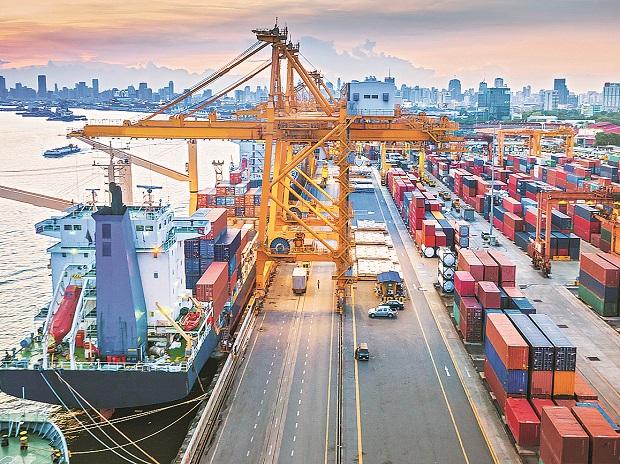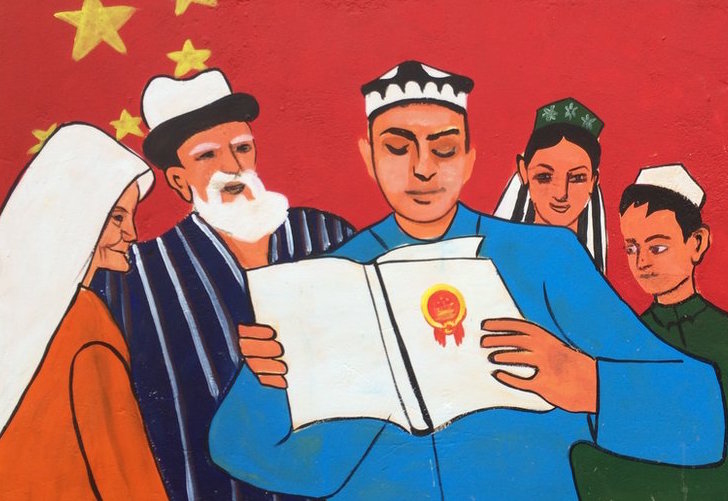Chairman ASEAN Committee Islamabad (ACI) Ambassador Nguyen Tien Phong said on Sunday that data from Pakistan showed that the country’s trade with ASEAN had reached approximately $11 billion in the fiscal year 2022.
The Vietnamese ambassador noted that regional comprehensive economic partnership (RCEP) carried huge economic potential, adding that the paradigm shift from geo-politics to geo-economics in Pakistan would enable the country’s economy to reach milestones.
The regional integration of ASEAN countries is not only essential for the economic prosperity of the ASEAN region but also for global economic linkages and connectivity, Phong pointed out while speaking to APP here.
The 55th anniversary of ASEAN will be observed on August 8 with the determination that the organisation will play its full role in economic prosperity, and trade integration to promote peace and foster harmony with the other regions of the world.
He said that RCEP, which came into force on January 1 earlier this year, was a free trade agreement among the Asia-Pacific nations of Australia, Brunei, Cambodia, China, Indonesia, Japan, South Korea, Laos, Malaysia, Myanmar, New Zealand, the Philippines, Singapore, Thailand and Vietnam.
The 15 member countries account for about 30% of the world’s population (2.2 billion people) and 30% of global GDP ($29.7 trillion), making it the largest trade bloc in history. The RCEP includes a mix of high- middle- and low-income countries. It is expected to eliminate about 90% of the tariffs on imports between its signatories within 20 years of coming into force, and establish common rules for e-commerce, trade, and intellectual property), he said.
The ambassador said that ASEAN and Pakistan need to promote and push up trade, economic, and investment relations through various means, including awareness raising and encouraging people-to-people as well as expert-to-expert contacts.
He also stressed the need to create favourable conditions for tourism, and connect B2B via organisations and business associations. He suggested stability, consistency and continuity in economic policies and implementation for economic integration between Pakistan and ASEAN.
Phong emphasised strengthening Pakistan’s bilateral ties with ASEAN member countries, which are also very crucial for the relations with the bloc, regarding the economic and investment sectors.
Replying to a question, he said that making full use of the complementarities of the economies from both sides, the huge market and number of Halal consumers, Halal goods/products trading.
He also proposed bringing into play the direct investments from ASEAN countries and joint ventures because FDI was a stable, substantial incentive for long-term growth and economic development, with “no deficit” likewise in the trading.
The ambassador said economic and trade liberalisation, multilateralism, credibility, global connectivity, economic stability, youth empowerment, maritime security, political stability, and region-to-region connectivity are part of ASEAN’s regional economic vision.
Regarding the 55th Anniversary of ASEAN’s establishment, he said that the organisation reaffirmed its belief that regionalism and multilateralism are important principles and frameworks of cooperation, and that their strength and value lie in their inclusivity, rules-based nature, and emphasis on mutual benefit and respect.
The meeting was chaired by Cambodia under the theme “ASEAN A.C.T.: Addressing Challenges Together.” He said that in the meeting ASEAN reaffirmed its commitment to address its common challenges and to sustain the momentum of ASEAN’s community-building efforts with a strong sense of togetherness.
ASEAN also discussed the need to further strengthen engagement and cooperation with dialogue partners and external partners, including through existing ASEAN-led mechanisms and the importance of ASEAN centrality, credibility and relevance in maintaining peace, stability, and prosperity in the regional and global endeavours amidst uncertainty and rapid changes in Southeast Asia and beyond.
He underscored the importance of maintaining ASEAN’s unity and centrality in its community-building efforts and engagement with external partners, in promoting peace, security and stability as well as in enhancing regional resilience in response to common and emerging challenges.
The ASEAN countries have also shown their shared commitment to maintaining and promoting peace, security and stability in the region, as well as to the peaceful resolution of disputes, including full respect for legal and diplomatic processes, without resorting to the threat or use of force, in accordance with the universally recognised principles of international law, including the 1982 United Nations Convention on the Law of the Sea (UNCLOS).
ASEAN underscored the importance of seizing the opportunities of the Fourth Industrial Revolution (4IR) with the Covid-19 pandemic having accentuated the urgency for digital transformation. The ambassador said that ASEAN’s economic growth could further accelerate to 5.0% in 2022.
ASEAN’s total merchandise trade reached USD 3.3 trillion in 2021, of which 21.3% was within the region, while services trade reached USD 743 billion with intra-ASEAN comprising 11.7%, he said.
Meanwhile, inflows of foreign direct investments to ASEAN reached USD 174.1 billion in 2021, 12.0% of which was among ASEAN member states, he said.
















